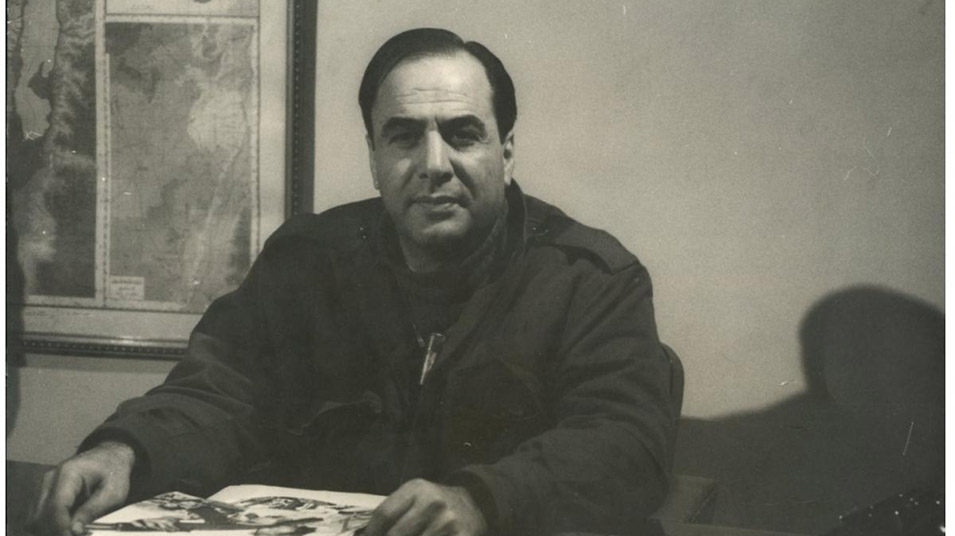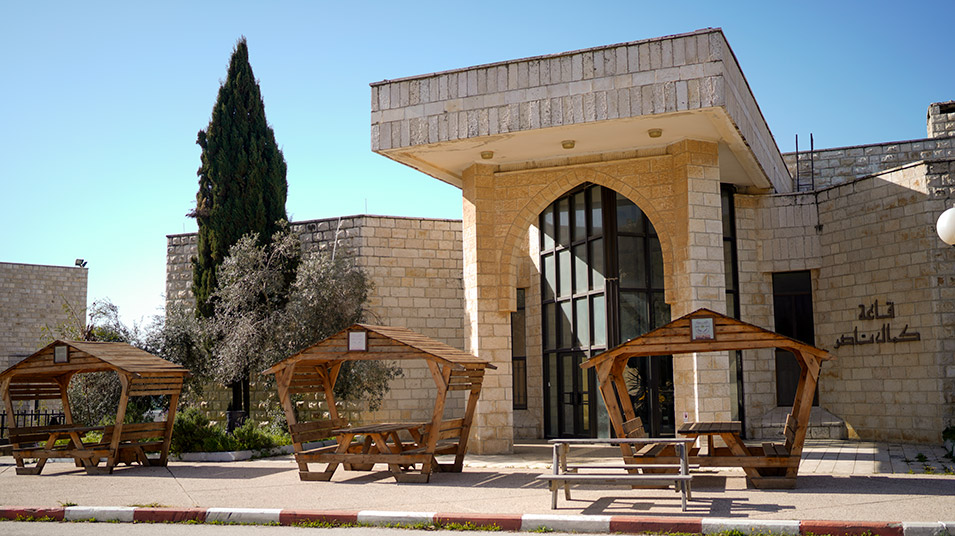Remembering Kamal Nasser on the 45th anniversary of Land Day
Since the early 1980s, Birzeit University’s community has been commemorating Land Day in remembrance of the Palestinians who lost their lives on March 30, 1976, while standing up against Israeli attempts to seize their lands. On that day, six Palestinians were killed in cold blood by Israeli forces, and more than 100 others were wounded.
On the 45th anniversary of Land Day, we’re commemorating the memory of those who gave away their lives for a free, independent Palestine by highlighting the life and poetry of Kamal Nasser, a poet, author, and political activist who fought for the Palestinian cause with actions and words.
Kamal was born in Gaza in 1924, but he grew up in his family’s hometown of Birzeit. He studied at what was then Birzeit College — which later turned into Birzeit University — and went on to pursue a degree in political science from the American University of Beirut in 1945.
Upon his return to Palestine, Kamal taught Arabic literature while studying law in Jerusalem, and then moved to Ramallah to teach at Al-Ahlia College. Between teaching in Jerusalem and moving to Ramallah, Kamal began his career in journalism by producing “Al-Jil Al-Jadid” (The New Generation), a periodical. He later joined the Arab Socialist Baʽath Party and became head editor of its newspaper, “Al-Ba’ath.”
Kamal was a fervent political activist who wrote for Arab unity and against the Israeli occupation of Palestine. His passionate writings and activism, especially regarding the 1948–49 forced displacement of nearly 700,000 Palestinians from their homeland by the invading Zionist forces, made him a target for Israeli authorities. Kamal was deported from Palestine in 1967.
Kamal’s forced expulsion, however, gave him fresh impetus. He joined the Palestinian Liberation Organization in 1968 and was elected as a member of its Executive Committee in 1969. At the PLO, Kamal was editor-in-chief of its official periodical, “Falastin Al-Thawra” (Palestinian Revolution). He also chaired the National Information and Guidance Department, later becoming spokesperson for the organization.
From 1969 until 1973, Kamal directed the PLO’s media and information efforts, working to raise awareness of the Palestinian cause. He was a prolific author, producing prose and poetry that focused on Arab unity and the Palestinian quest for independence. Among his works are, “Jirah Tughani” (Singing Wounds), a poetry collection published in 1959, and “Ughniyat Min Paris” (Songs from Paris), a poetry collection published in 1967.
Kamal was assassinated in 1973 by a team of undercover Israeli commandos in a raid on his home in Beirut, Lebanon. He was killed along with Kamal Adwan, Mohammed Yousef An-Najjar, and Rasmiya An-Najjar, the latter’s wife.
A hundred meters or so from the university’s South Gate, nearly at the center of Birzeit University’s campus, lies the Kamal Nasser Hall, one of the university’s largest rooms. The hall, used for teaching and university-wide activities, is named after the famous poet and intellectual in recognition of a life dedicated to Palestine and the Palestinian cause.
The Story, by Kamal Nasser:
I will tell you a story
A story that lived in the dreams of people
A story that comes out of the world of tents
Was made by hunger, and decorated by the dark nights
In my country, and my country is a handful of refugees
Every twenty of them have a pound of flour
And promises of relief, gifts and parcels
It is the story of the suffering group
Who stood for ten years in hunger
In tears and agony
In hardship and yearning
It is a story of a people who were misled
Who were thrown into the mazes of years
But they defied and stood
Disrobed and united
And went to light, from the tents,
The revolution of return in the world of darkness








